In July 1939, at Liverpool Street Station, Mollie Panter-Downes watched as 147 Jewish children, each wearing a numbered label, arrived from Berlin. Already an occasional contributor to The New Yorker at a time when Congress was in the process of rejecting the Wagner-Rogers bill which would have given refuge in the United States to 20 000 Jewish children from Nazi Germany, she submitted an article aimed at convincing American readers of the children’s potential. The bill was blocked by an anti-semitic Anglophobe senator but the article, ‘Amid the Alien Corn’, was published, and when, as war loomed, the editor needed a London correspondent, he cabled Mollie, asking her to ‘try out’ a regular ‘Letter from London’. The trial was a success, and the ‘letters’ were to continue until 1984. Opening with the declaration of war on 3rd September 1939 and ending with a dazzling account of VE Day, London War Notes reprints a selection of the first 153 letters, each an individual triumph of wartime communication, ‘transported by car or bicycle through the blackout to the guard on a London-bound train, where it would be met by a Western Union messenger who cabled it to New York’ – almost unimaginable in these days of emails and attached files.
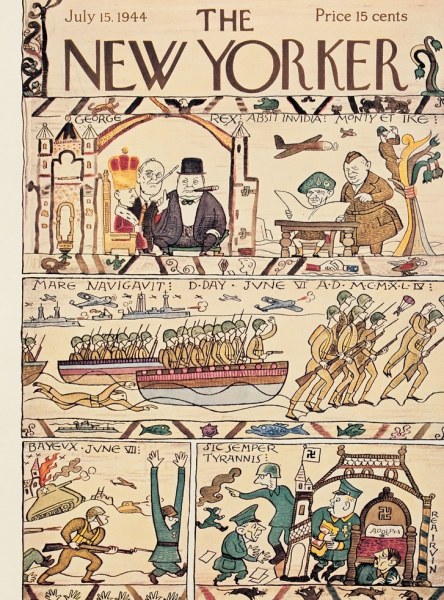
Mollie’s wartime writing was divided, like her life, between London and country, the Lansdowne Club in Mayfair and home near Haslemere in Surrey. Covering the same period as London War Notes, Good Evening, Mrs Craven: The Wartime Stories of Mollie Panter-Downes (PB No. 8) focused tightly on the home front, on the domestic, and, with very few exceptions, on village rather than on city life. Arrivals (unwelcome relations, erstwhile friends, billeted soldiers, and evacuees), departures (children to America, young sons and daughters, into the services), rationing and shortages all impact on village life. The villagers’ war effort is useful but modest. Distant gunfire rattles the china, enemy planes fly over but hold their lethal cargo for the cities. The World War is filtered through the daily papers and radio broadcasts. The bigger picture is projected, partially and reduced, onto a tiny canvas.
In today’s terms, to read London War Notes is to watch Channel 4 News, followed by ‘the news where you are’, wonderfully enhanced by the addition of Mollie’s very personal commentary. She never loses sight of her rural characters, creating and populating a ‘typical’ English village for her American readers. With its resident retired army officer, Colonel Basing, Mugbourne is in safe hands: gas masks are distributed, evacuees and their mothers placed by Mrs Molyneux-Thring, the billeting officer, while her butler drills the staff, and Miss Molyneux-Thring prepares to drive the village ambulance in readiness for the first air raid practice (Mugbourne doesn’t have its own air raid siren – no matter). But Mollie had a wider brief: her American editor was looking for a London correspondent to report on what was still a European war but would later become a world war. His readers knew the raw facts, but wanted to know what it felt like, quite literally, on the ground. Mollie Panter-Downes more than met his requirements.
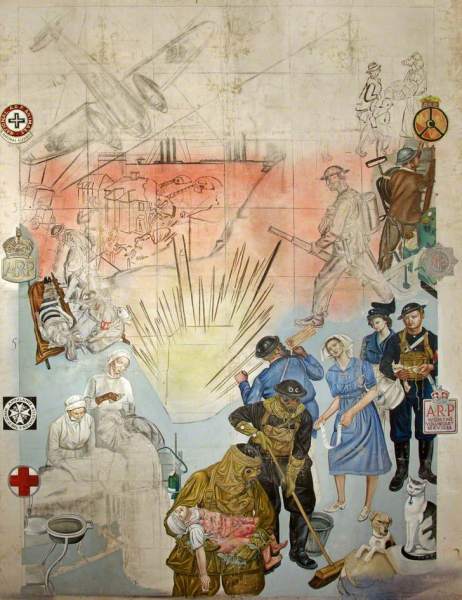
“Do you remember, during the war …?”, the grown-ups would ask each other, often when I was a small child, and didn’t understand, then less and less, until finally, when I was old enough (much older) to ask my own questions, the memories, or their memory perhaps, had faded. The Important Facts had by then begun to be shaped into history, but I wanted the detail, the daily round. What was it like for them, what would it have been like for me? London War Notes provides answers, and surprises.
The first surprise for me was how swiftly everything changed. The opening letter is dated 3rd September, the day that Great Britain and France declared war on Germany. But already gas masks have been distributed, blackout has been enforced, sandbags and barrage balloons are in place, bomber squadrons are flying overhead, and hordes of London children are being labelled and dispatched to live with strangers, who have cleared their guest rooms of ‘Crown Derby knickknacks and the best guest towels’. London, and ‘Mugbournes’ across the country are ready for action.
Another month and Noël Coward and Ralph Richardson have joined the Navy, and Beatrice Lillie is singing to the troops. Soon, the National Gallery, stripped of its paintings for the duration, is advertising lunchtime concerts, and its director, Kenneth Clark, is naming the war artists, the first of whom, Rushbury, Kennington and Roberts had barely cleaned their brushes since doing the same job in the previous war. The poets Louis McNeice and C Day Lewis will work at the BBC, Stephen Spender will join the firemen. More importantly, Churchill, is back in the seat of power. Mollie’s admiration for him is unbounded, flagging only a little after the retreats in Libya and Malaya when she admits to an ‘uneasy suspicion that fine oratory may sometimes carry away the orator as well as his audience.’ Less importantly (but of interest presumably to royal watchers in the United States) the Duke and Duchess of Windsor returned home ‘in a blaze of apathy’.
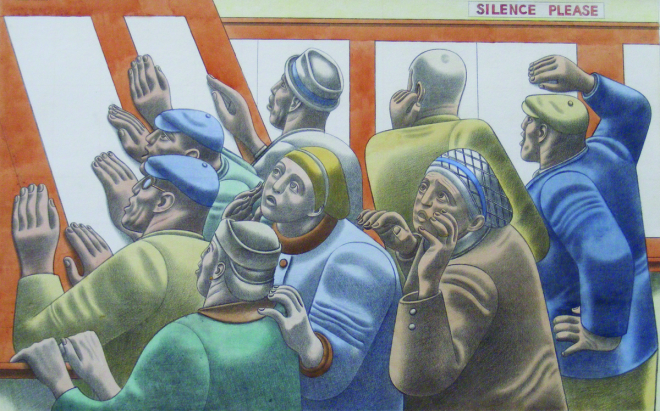
Meanwhile, aliens, German and Austrian refugees, many filling the gaps left by departing cooks in the kitchens of the middle classes – ‘domestic servants are soon going to be as extinct as the mammoth’ – are being urged ‘to behave in a becomingly British manner’, to report at once to their local police stations and hand over ‘any explosives, motorcycles, seagoing craft … cameras, maps and nautical charts.’
MPD’s eye and ear for bureaucratic absurdity is unfailing. And she does not want for material. The shortage of paper that results in newspapers shrinking ‘to svelte proportions’, school children being deprived of textbooks, and a yearly diminution in the number and variety of Christmas cards, at no stage impeded the publication of Ministerial dictats, which she delights in gently mocking, even as the threat of imminent invasion shattered the fragile calm of the ‘phoney war’. The Ministry of Transport ordered the precautionary disabling of private motor cars: ‘The magneto and the fuel injection pump must be smashed with a hammer, and in case non-mechanical owners should stand gaping and wondering which of the silly-looking things to smash first, the pamphlet recommends gently that “they should go to the nearest garage at once to find out.”’ She inveighs against the advertisements published by the Ministry of Information encouraging ‘correct behaviour under stress’ (were these the famous Keep Calm and Carry On posters?), pointing out that ‘under stress every charwoman reacts with the courage, restraint and humor [American spelling is used throughout] traditionally expected of aristocrats.’ An insult and a waste of precious paper. The shortage of paper, she has explained, was the result of the German invasion of Scandinavia. The following year fighting in Malaya, the source of Britain’s rubber, would strike at ‘the production of corsets, fly swatters, tobacco pouches, garden hose, rubber bones for dogs and golf-tees’, and bring about a dearth of hot water-bottles in the bitterly cold winter of 1942. The War was both far away and very close.
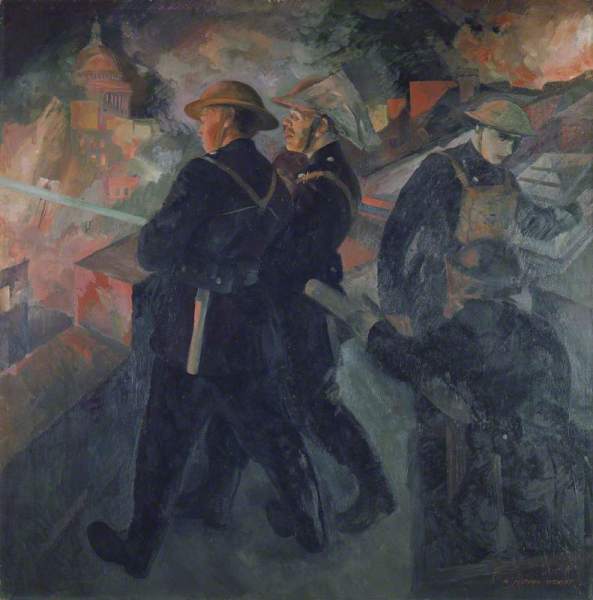
For Londoners it was very close indeed and cruelly so during the months of the Blitz. Behind Mollie’s cool understatement and wry wit is a serious commentary. The first tragic note is struck at the end of August 1940, when the announcements of the first air raid deaths appear in the obituary columns: ‘No mention is made of the cause of death, but the conventional phrase ‘very suddenly’ is always used. Thousands of men, women and children are scheduled to die very suddenly, without any particular notice being taken of them in the obituary columns … ‘All that is best in the good life of civilised effort appears to be slowly and painfully keeling over in the chaos of man’s inhumanity to man.’ But with the same courage that she praises in the British people (tacitly urging New Yorker readers to do the same), she stiffens her upper lip, and describes the unexpected pleasure to be found in Oxford Street, which ‘now has all the charms of shopping in an open air market, with silk stockings and fragile underwear blowing in the breeze let in through paneless windows.’ Bomb damage is not told, but shown, and surprisingly enjoyed in its surreal result.
Rationing too is ‘personalised’. Clothes rationing affecting all but the very rich, whose wardrobes were ‘regulated by nothing but the depths of their pocketbooks’, caused early panic for most, ‘only a paltry sixty-six coupons between them and loincloths’ and penury for hundreds of small dress shops and tailors. For children it meant relying on hand-me-downs, so that boys and girls became ‘accustomed to meeting last winter’s coat walking down the street on someone else’s back.’ For five years food took the place of weather as the fall-back topic of conversation. Weekend guests would arrive with butter, and sugar was more welcome than flowers. Christmas was a dull affair, few presents, tinned turkey, maybe a second hand trike or dolls’ pram, toys that ‘look as though they had been knocked together out of an old sugar box by a ten year old with his first fret saw.’ This is what it would have been like for me.
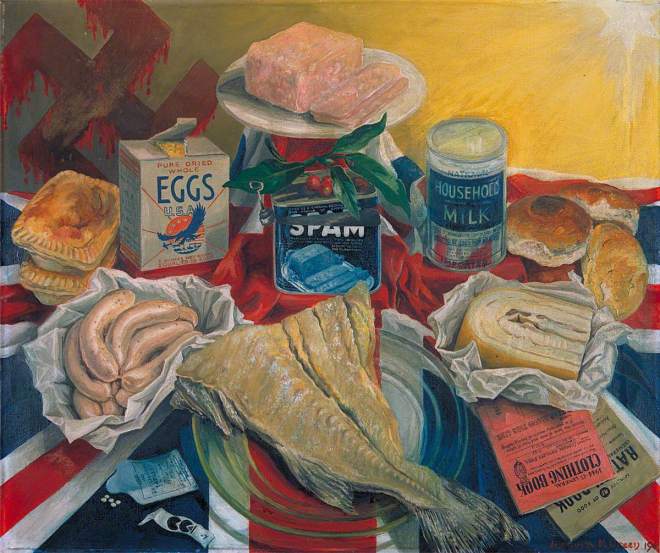
London War Notes is not a diary, but a weekly record for a nation who would become our most important ally. The account is for the most part, to use a more modern word, upbeat. The war news is limited, because war news was limited – even the weather forecast was considered too secret to broadcast. It is, by default, an inward looking account. Only in the final months of the war does Mollie Panter-Downes learn of the food shortages suffered in France, in Holland and in Belgium. Not until March 1945 does she write of the photographs showing the results of Allied bombing of Germany, news of which two years earlier had been ‘a fine tonic to Londoners’: the ‘strategic bombing’ which Mathilde Wolff-Mönckeberg writes about in such agonising detail in On the Other Side: Letters to my Children from Germany 1940-46 (PB No. 75).
Mollie Panter-Downes covers the war from beginning to end: from the declaration, through conscription for women, evacuation, the Blitz and D Day, ‘the greatest day of our times’, which turned out unexpectedly to be ‘just the same ole London day, with men and women going to the office, queuing up for fish, getting haircuts, and scrambling for lunch’, to VE Day, when working girls ‘streamed out into the parks and streets like flocks of twittering, gaily plumaged cockney birds’, and ‘with their customary practicality housewives put bread before circuses [and] waited in the long bakery queues, the string bags of the common ground in one hand and the Union Jack of the glad occasion in the other.’ There are twenty-one books listed under the heading WW2 in the Persephone catalogue here. London War Notes is a companion volume not just to Mollie Panter-Downes’s Wartime Stories, but to each of the other twenty.
